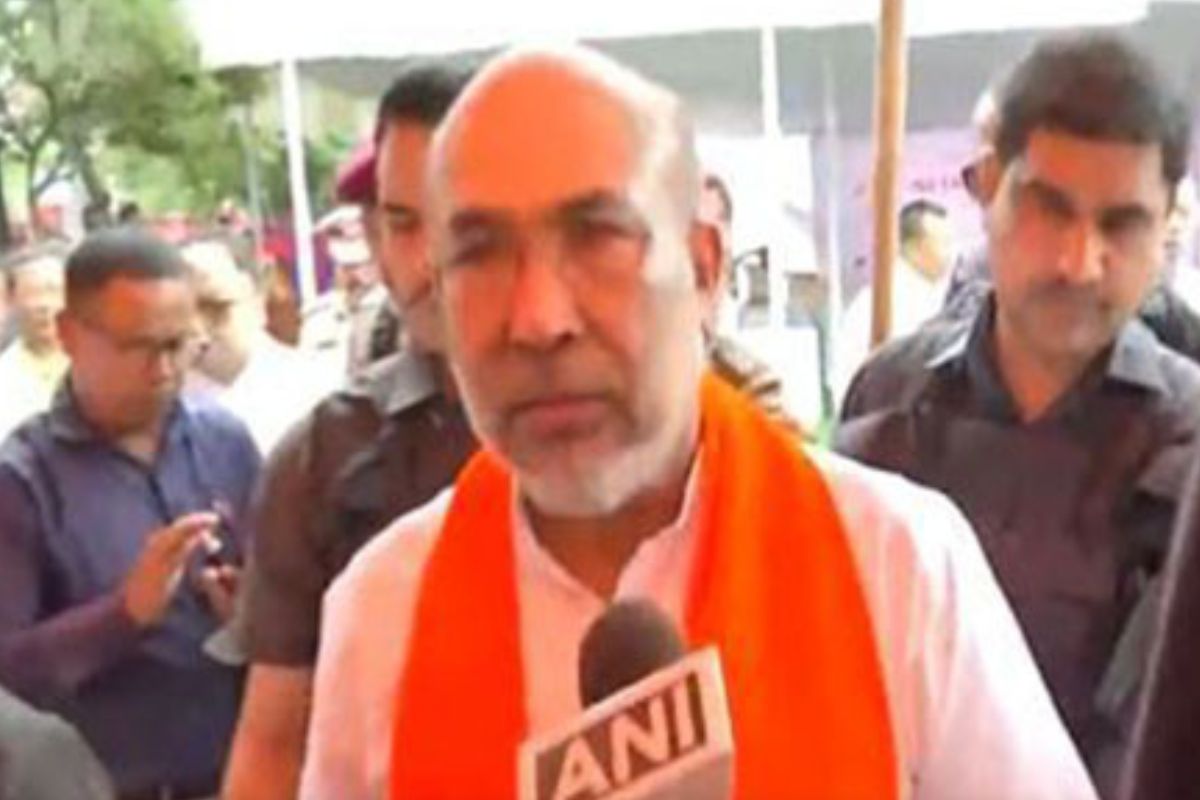US puts Manipur, Meghalaya on ‘high risk’ list in latest travel advisory
The United States State Department has updated its travel advisory for India, placing particular emphasis on the northeastern states of Manipur and Meghalaya.
Though no group has so far claimed responsibility for the attack, it is widely seen as a manifestation of the ongoing ethnic clashes between the Meitei and Kuki tribes.

Chief Minister N Biren Singh (Photo: ANI)
After uneasy calm, suspected militants tried to ambush Chief Minister N Biren Singh’s advance convoy signaling a resurgence of violence in this trouble-torn state of Manipur.
In the attack that took place on National Highway 37 near Jiribam at around 10:30 am a security personnel, identified as Moirangthem Ajesh, was injured.
Though no group has so far claimed responsibility for the attack, it is widely seen as a manifestation of the ongoing ethnic clashes between the Meitei and Kuki tribes, which have claimed innumerable deaths over the past two years.
Advertisement
Chief Minister N Biren Singh condemned the attack, describing it as a direct attack on him and the people of Manipur. He announced that the state government would implement stringent measures to reestablish law and order.
“From the very beginning of the crisis, the state government refrained from harsh retaliation hoping for resolution of peace through mutual understanding,” Singh stated, adding, “However, this incident, which directly targets state machinery, is unacceptable. It appears as though the perpetrators are acting with the belief that there is no governing authority in place.”
Singh was speaking to the local media after visiting the injured security personnel in a city hospital.
The ambush occurred at T Laijang near Kotlen on NH-37 Jiribam road. The chief minister’s advance security team was en route to Jiribam to ensure safety ahead of Singh’s planned visit to the violence-ridden district, located about 220 km from the state capital, Imphal.
The latest surge in violence began on June 6, following the discovery of the body of Soibam Saratkumar Singh, a 59-year-old Meitei farmer who had been missing for weeks. The discovery of Singh’s body set off a wave of outrage among residents, prompting urgent calls for enhanced security measures and the right to arm themselves for their protection.
The situation deteriorated rapidly, spilling into the neighbouring state of Assam, where approximately 600 individuals from diverse ethnic backgrounds sought refuge in the Lakhipur and Cachar districts, fleeing the violence in their homeland in the grip of violence.
The ethnic violence in Manipur primarily involves the Meitei, who mainly reside in the Imphal Valley, and the Kuki tribes, who inhabit the surrounding hills. This conflict has deep historical roots and complex socio-political dimensions.
The Meiteis, who form the majority in Manipur, are primarily Hindu and have historically held political and economic power in the state. In contrast, the Kukis, predominantly Christian, allege that they have faced marginalisation, leading to long-standing grievances.
The Kukis have demanded greater autonomy and protection of their rights, while the Meiteis resisted these demands, fearing a loss of control and influence.
The discovery of Soibam Saratkumar Singh’s body and the subsequent violent backlash are the latest episodes in the long history of ethnic strife. The state’s efforts to mediate and bring about reconciliation have met with limited success while incidents like the ambush on the chief minister’s convoy highlight the persistent volatility and deep-seated mistrust between the Meitei and Kuki communities.
Advertisement